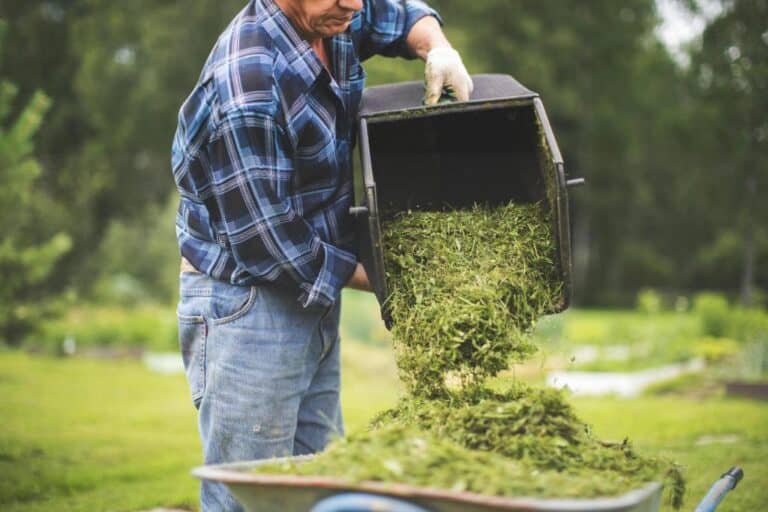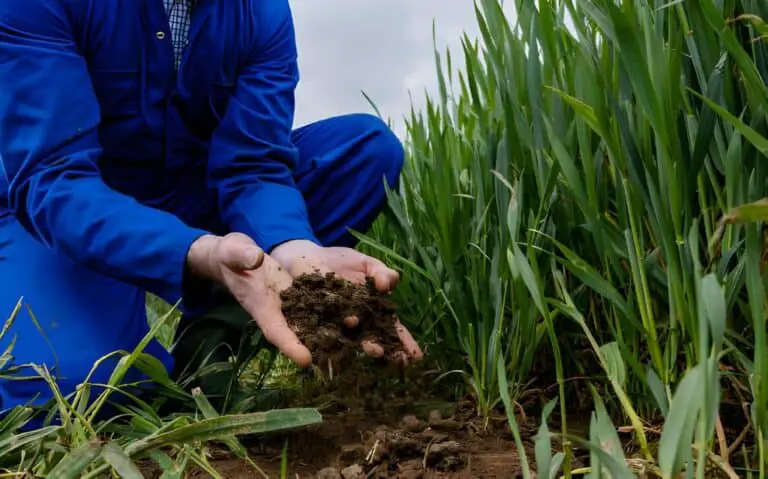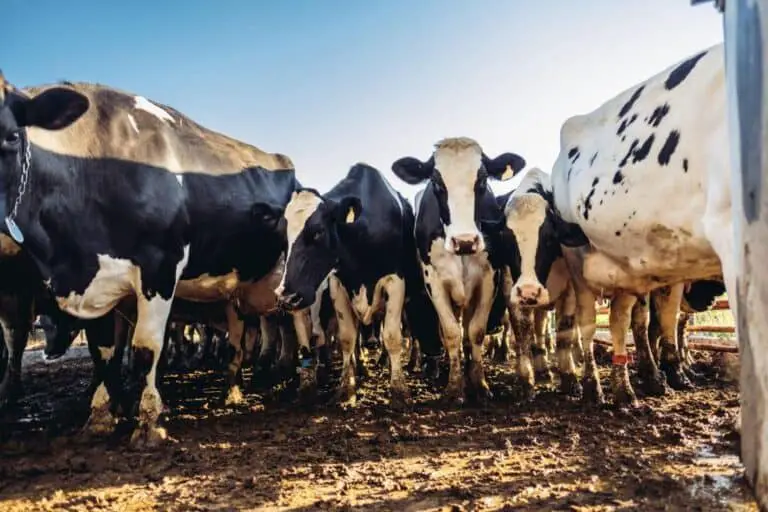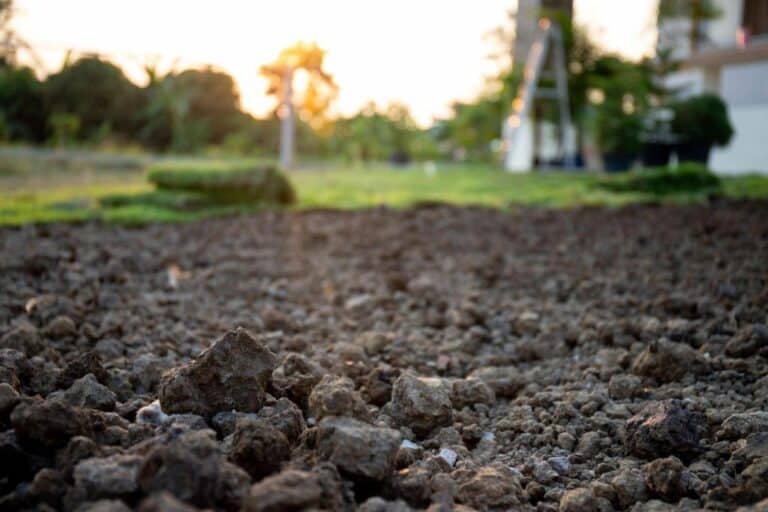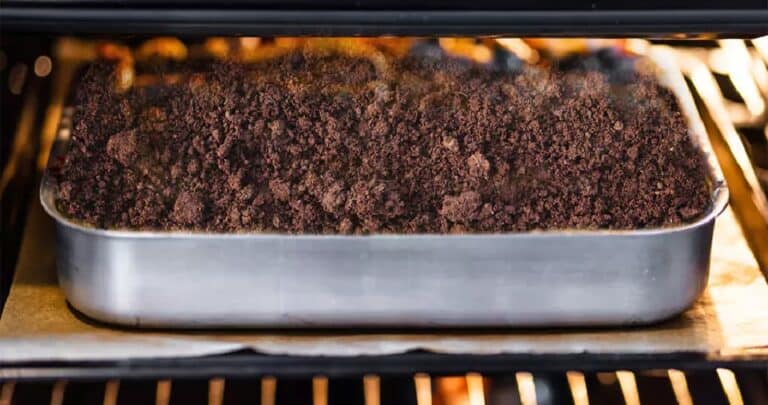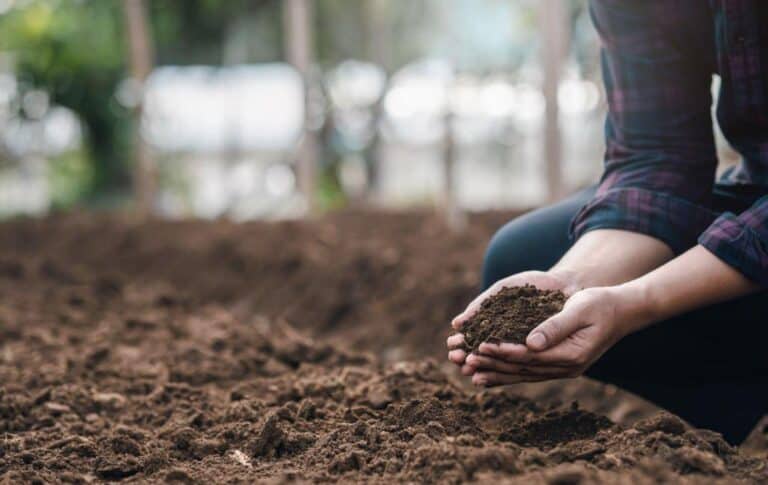How to Make Liquid Fertilizer From Chicken Manure at Home
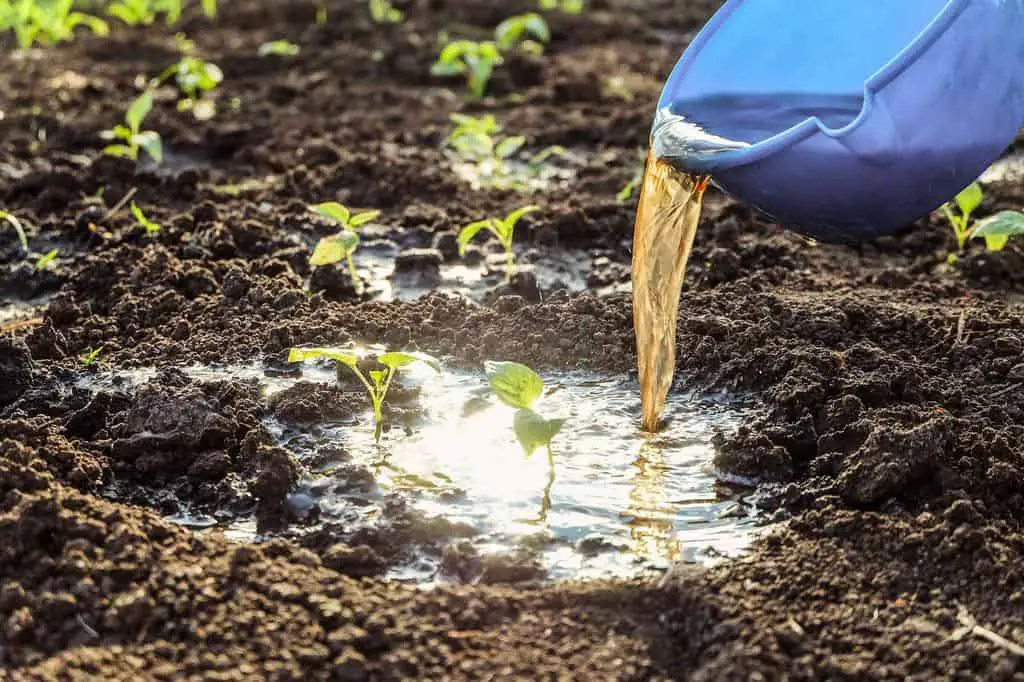
In the age-old symphony of agriculture, where every note plays a vital role in nurturing the earth’s bounty, there’s one unsung hero that often goes unnoticed: liquid fertilizer made from chicken manure.
If you’re a gardener or farmer looking for an affordable and eco-friendly way to boost your plants’ growth, liquid fertilizer made from chicken manure might be just the solution you need. Chicken manure is rich in essential nutrients like nitrogen, phosphorus, and potassium, making it an excellent choice for nourishing your plants.
In this guide, we’ll walk you through the step-by-step process of creating your own homemade liquid fertilizer from chicken manure. It’s a simple, sustainable, and cost-effective method that can yield fantastic results for your garden or farm.
Why Choose Liquid Fertilizer from Chicken Manure?
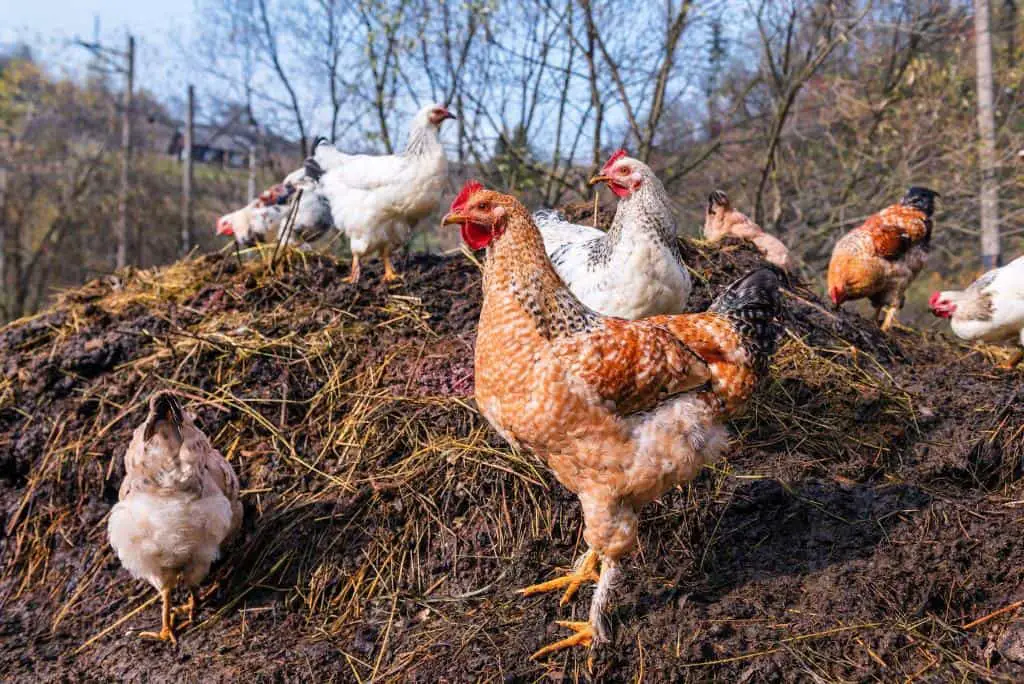
Before we dive into the nitty-gritty of making this potent fertilizer, let’s explore why you should consider using it in the first place. Here are some compelling reasons:
- Nutrient-Rich: Chicken manure is a nutrient powerhouse. It’s packed with nitrogen, phosphorus, and potassium, essential elements for healthy plant growth.
- Cost-Effective: Making your own liquid fertilizer from chicken manure is significantly cheaper than buying commercial alternatives. You’ll save money and reduce waste.
- Eco-Friendly: This method promotes recycling and reduces the environmental impact of chicken farming by turning waste into a valuable resource.
- Improved Soil Health: Liquid chicken manure fertilizer enriches the soil, enhancing its fertility and structure over time.
Now that you’re convinced of its benefits, let’s get started on making your own liquid fertilizer from chicken manure.
Materials You’ll Need
Gathering the necessary materials is the first step in creating your homemade liquid fertilizer. Here’s a list of what you’ll need:
- Fresh chicken manure
- A plastic or metal container with a lid (e.g., a bucket or barrel)
- Water
- Stirring stick
- A sieve or cheesecloth
- Empty bottles or containers for storing the fertilizer
Safety Precautions
While making and using liquid chicken manure fertilizer is relatively simple, it’s essential to take some safety precautions:
- Wear gloves and a mask when handling chicken manure to protect against potential pathogens.
- Store the fermented mixture away from children and pets.
- Avoid using the fertilizer on edible parts of plants within a few weeks of application.
Step-by-Step Guide
1. Collecting Chicken Manure
Begin by collecting fresh chicken manure. If you have chickens on your property, this step is relatively easy. However, if you don’t, you can often find chicken manure for sale at local farms or agricultural supply stores.
Pro Tip: Collect manure from free-range chickens or those raised on organic diets for the best-quality fertilizer.
2. Mixing with Water
Once you have your chicken manure, it’s time to create the fertilizer mixture. Here’s a simple formula to follow:
- 1 part chicken manure
- 1 part water
For example, if you have one gallon of chicken manure, you should mix it with one gallon of water.
3. Container Selection
Choose a suitable container for the fermentation process. A plastic or metal container with a lid works well. Make sure it’s large enough to accommodate the manure and water mixture.
4. Mixing and Fermentation
Place the chicken manure and water mixture into your chosen container. Stir it thoroughly to ensure an even distribution of the nutrients. Now, close the container with the lid.
Pro Tip: It’s essential to keep the container in a well-ventilated area, away from your living spaces, as the fermentation process can produce a strong odor.
5. Fermentation Duration
Allow the mixture to ferment for approximately 2 to 3 weeks. During this time, the nutrients from the chicken manure will leach into the water, creating a nutrient-rich liquid fertilizer.
6. Sieving
After the fermentation period, it’s time to separate the liquid fertilizer from any remaining solids. Use a sieve or cheesecloth to strain the mixture into another container. This will remove any undecomposed materials and ensure that you have a smooth liquid fertilizer.
7. Dilution
Before using your liquid chicken manure fertilizer on your plants, you’ll need to dilute it. A typical dilution ratio is 1 part fertilizer to 4 parts water. You can adjust this ratio depending on your plants’ specific needs.
8. Application
Now that your liquid fertilizer is ready, it’s time to use it in your garden or on your farm. Here are some application tips:
- Foliar Spray: Spray the diluted fertilizer directly onto your plant leaves for rapid absorption.
- Root Drench: Pour the fertilizer at the base of your plants to nourish their root systems.
- Regular Use: Apply the fertilizer every two to four weeks during the growing season for optimal results.
Do You Need to Compost Chicken Manure?
When it comes to chicken manure, the question on many gardening enthusiasts’ minds is whether or not it needs to be composted before use. The short answer is: yes, composting is highly recommended. But let’s delve deeper into the why and how of this crucial step.
Why Compost Chicken Manure
Composting chicken manure is essential for several reasons. First and foremost, raw chicken droppings can be pretty potent, carrying a strong ammonia-like odor and harboring pathogens.
Composting not only helps neutralize these odors but also kills harmful pathogens through the heat generated in the process. Furthermore, composting breaks down the manure into a form that’s more readily absorbed by plants, making it a more efficient and eco-friendly choice for garden nourishment.
How to Compost Chicken Manure
Composting chicken manure can be a straightforward process. Start by collecting the manure and mixing it with carbon-rich materials like straw, leaves, or sawdust. Create layers, maintain proper moisture levels, and turn the pile regularly to aerate it. Within a few months, you’ll have well-composed chicken manure ready for your garden.
Be sure to monitor the compost’s temperature and ensure it reaches at least 130°F (54°C) for several days to kill off any lingering pathogens.
What Are the Ideal Nutrient Ratios for Chicken Manure Liquid Fertilizer?
Determining the ideal nutrient ratios for chicken manure liquid fertilizer is crucial to ensuring your plants receive the right balance of essential elements for optimal growth and health. While these ratios can fluctuate depending on factors such as diet and fermentation duration, a general guideline serves as a solid foundation.
In crafting an effective chicken manure liquid fertilizer, it’s essential to target approximately 2-4% nitrogen (N), 1-2% phosphorus (P), and 1-2% potassium (K).
These three macronutrients, often referred to as N-P-K, form the cornerstone of plant nutrition.
Nitrogen aids in leafy growth and overall green vigor; phosphorus supports root development and flowering; and potassium enhances disease resistance and overall plant strength.
However, it’s worth noting that the precise nutrient ratios within your chicken manure may deviate somewhat. This variation arises from the diet of your feathered friends, which can include scraps, grains, and other feed.
Chickens consuming a balanced diet rich in protein sources tend to produce manure with a higher nitrogen content. On the other hand, manure from chickens primarily fed grains might have a lower nitrogen proportion but is still valuable for its phosphorus and potassium contributions.
Fermentation duration is another crucial factor affecting nutrient ratios. The longer you allow the chicken manure to ferment, the more the organic materials break down, potentially increasing the availability of nutrients. As such, it’s advisable to monitor the fermentation process carefully.
To gain a more accurate understanding of the nutrient content in your chicken manure liquid fertilizer, consider performing a basic nutrient analysis or seeking guidance from a local agricultural extension office. They can help tailor your fertilizer mix to meet the specific needs of your garden, ensuring your plants thrive on the carefully balanced nourishment derived from your feathered companions’ waste.
Find out: How Much Composted Manure You Need for Every Square Foot of Soil
Comparing Homemade Liquid Fertilizer to Commercial Options
When it comes to nourishing your plants, the choice between homemade chicken manure liquid fertilizer and store-bought alternatives is a crucial decision for any gardener or farmer. Let’s dive into the comparison to help you make an informed choice.
Below is a table summarizing the comparison between homemade chicken manure liquid fertilizer and commercial alternatives:
| Aspect | Homemade Chicken Manure Liquid Fertilizer | Commercial Alternatives |
| Cost-Effectiveness | Cost-effective; significantly cheaper | Convenient but often pricier |
| Sustainability | Environmentally friendly; reduces waste | May contain synthetic additives |
| Nutrient Content | Nutrient-richness varies based on factors | Consistent nutrient ratios may have synthetic additives |
| Customization | Highly customizable to plant and soil needs | Standardized formulas |
| Quality Control | Direct control over manure source and quality | Ingredient source may not be disclosed |
| Storage and Shelf Life | Prepared as needed; reduces storage concerns | Large quantities require proper storage |
| Environmental Impact | Low environmental impact; sustainable | Manufacturing and transportation impact |
| Learning Experience | Educational and rewarding | Convenient but lacks hands-on involvement |
This table provides a quick reference to help you make an informed decision based on your gardening preferences and priorities.
Applying Chicken Manure Liquid Fertilizer to Your Garden
Applying chicken manure liquid fertilizer to your garden is the culmination of your efforts in creating this nutrient-rich elixir. How and when you apply it can significantly impact the health and vitality of your crops and plants.
In this section, we will delve into the best practices for the application of this organic wonder, ensuring that your garden thrives.
When it comes to applying chicken manure liquid fertilizer, the first step is dilution. This is critical to preventing overfertilization, which can harm your plants. Dilute the liquid fertilizer with water at a recommended ratio of approximately 1 part fertilizer to 10 parts water. However, this ratio can vary depending on the age of your plants and their specific nutrient requirements. Younger plants may require a milder solution.
Before applying the fertilizer, it’s essential to water your garden thoroughly. This primes the soil to absorb the nutrients more effectively and reduces the risk of root burn, a condition that can occur if the concentrated fertilizer comes into direct contact with plant roots.
When it comes to the actual application, there are a few methods you can choose from:
Foliar Spray: This method involves spraying the diluted chicken manure liquid fertilizer directly onto the leaves of your plants. This allows for rapid nutrient absorption through the foliage. Be sure to apply the spray during the cooler parts of the day to prevent scorching due to the sun’s intensity.
Root Drench: Pour the diluted fertilizer mixture directly onto the soil around the base of your plants. This method ensures that the nutrients are delivered directly to the root zone, where they are most needed. Take care not to flood the plants; a slow, steady drenching is ideal.
Drip Irrigation: If you have a drip irrigation system in your garden, you can incorporate the liquid fertilizer into your watering routine. This method provides a consistent and controlled delivery of nutrients to the root zone.
Frequency of Application: The frequency of applying chicken manure liquid fertilizer depends on various factors, including the growth stage of your plants, the soil quality, and weather conditions. As a general rule, a monthly application during the growing season is a good starting point. However, always monitor your plants for signs of nutrient deficiency or excess and adjust your application schedule accordingly.
Timing: Applying the fertilizer in the early morning or late afternoon is ideal, as this minimizes the risk of scorching due to intense sunlight. Avoid applying the fertilizer when the weather is exceptionally hot, as this can stress the plants.
How to Store Chicken Manure Liquid Fertilizer
Storing chicken manure as liquid fertilizer is a vital aspect of the process, as it ensures the longevity and effectiveness of your nutrient-rich concoction. Proper storage not only maintains the nutrient content but also prevents foul odors and minimizes the risk of contamination.
The first step in storing chicken manure as liquid fertilizer is to select the right container. Opt for non-reactive, airtight containers made of materials such as plastic or glass. Metal containers may react with the fertilizer, leading to nutrient loss or even dangerous chemical reactions. Make sure the chosen container has a secure, well-fitting lid to seal in the goodness and prevent the escape of unpleasant odors.
Next, find an appropriate location for your storage container. Ideally, this should be a cool, dark area away from direct sunlight and extreme temperature fluctuations. Extremes in temperature can degrade the nutrient content of the liquid fertilizer, so maintaining a stable environment is essential.
Before transferring your freshly brewed chicken manure liquid fertilizer into the storage container, it’s crucial to strain out any solid particles or debris. Using a fine-mesh sieve or cheesecloth, filter the liquid to ensure it’s clear of any solids that might clog your application equipment or affect the consistency of the fertilizer.
Once the liquid is filtered and ready for storage, pour it into the selected container, leaving some space at the top to allow for expansion. Seal the container tightly to prevent air from entering, as exposure to oxygen can lead to nutrient loss.
Regularly check your stored chicken manure liquid fertilizer for any signs of spoilage or foul odors. If you notice any changes, such as an ammonia-like smell or mold growth, it’s essential to take corrective action immediately. Stirring the liquid periodically can help maintain the uniformity of the mixture.
Conclusion
Creating liquid fertilizer from chicken manure at home is a sustainable and cost-effective way to nourish your plants and improve soil health. By following these steps and safety precautions, you can harness the power of chicken waste to boost the growth of your garden or farm crops.
So, roll up your sleeves, gather the necessary materials, and start making your own liquid fertilizer today. Your plants will thank you for it with lush, vibrant growth!
FAQs on Homemade Liquid Fertilizer from Chicken Droppings
How long does it take to make liquid fertilizer from chicken manure?
It typically takes 2 to 3 weeks to make liquid fertilizer from chicken manure through the fermentation process.
Can you use fresh chicken manure for liquid fertilizer?
Fresh chicken manure for gardens is not recommended for liquid fertilizer due to its high ammonia content, which can harm plants. It needs to undergo a fermentation process first.
Are there any risks associated with using chicken manure fertilizer?
Yes, risks include potential pathogens in fresh raw manure, strong odors during fermentation, and the need to avoid using it on edible parts of plants soon after application.
Is chicken manure fertilizer safe for all types of plants?
It’s generally suitable for most plants, but it’s important to dilute properly and be cautious with sensitive plants, as it can be potent.
Are there any alternative sources of organic material for liquid fertilizer?
Yes, alternatives include compost tea, fish emulsion, and seaweed extracts, each with its own nutrient profile.
How often should I apply chicken manure liquid fertilizer to my garden?
Apply every 2 to 4 weeks during the growing season for best results, adjusting based on your plants’ needs.
Can I use liquid chicken manure fertilizer for indoor plants?
Yes, but use it sparingly and dilute it well to prevent over-fertilization, which can harm indoor plants.
What are the key differences between liquid and solid chicken manure fertilizers?
Liquid fertilizer is quicker to absorb, while solid manure releases nutrients slowly. Liquid is better for foliar feeding, while solid is ideal for long-term soil improvement.

